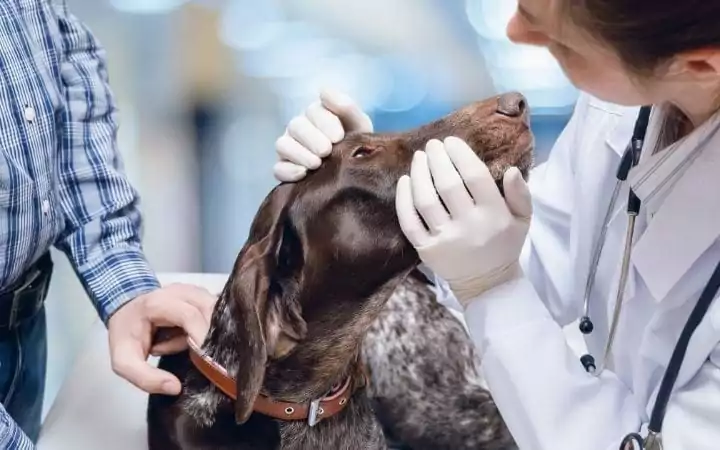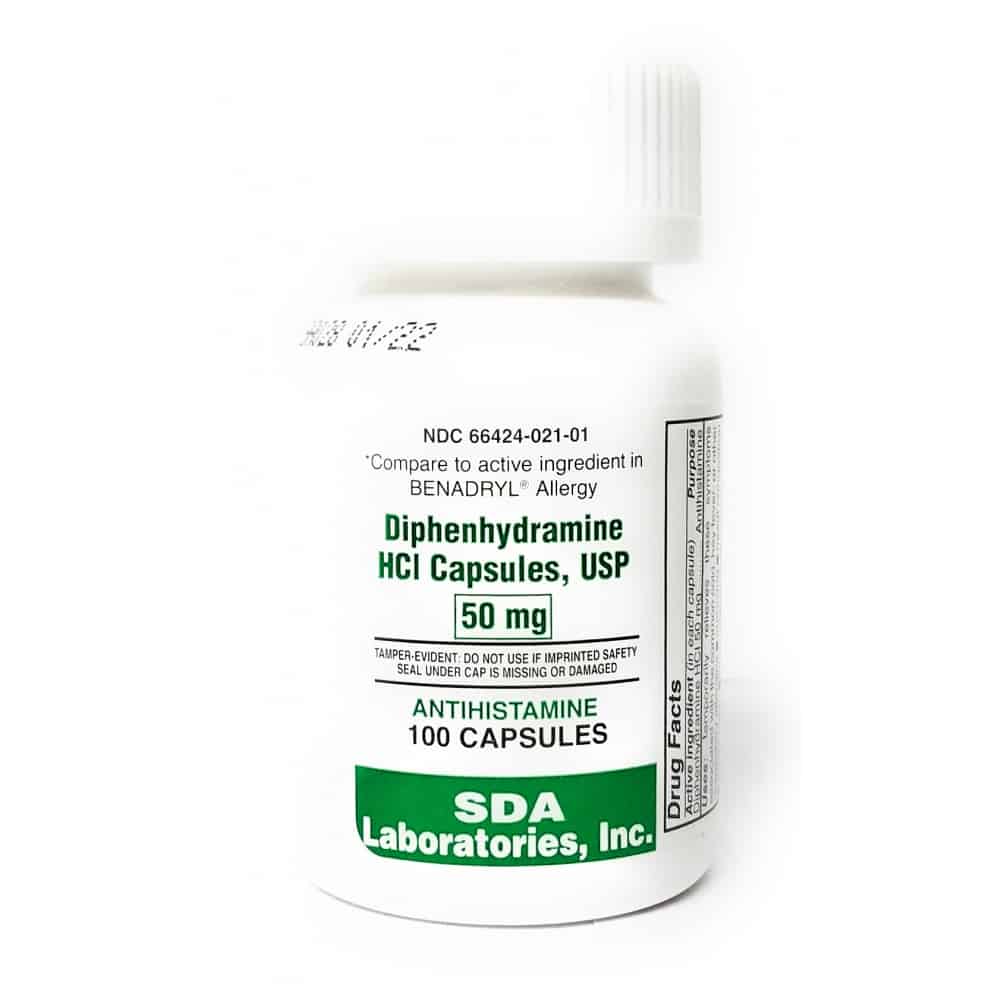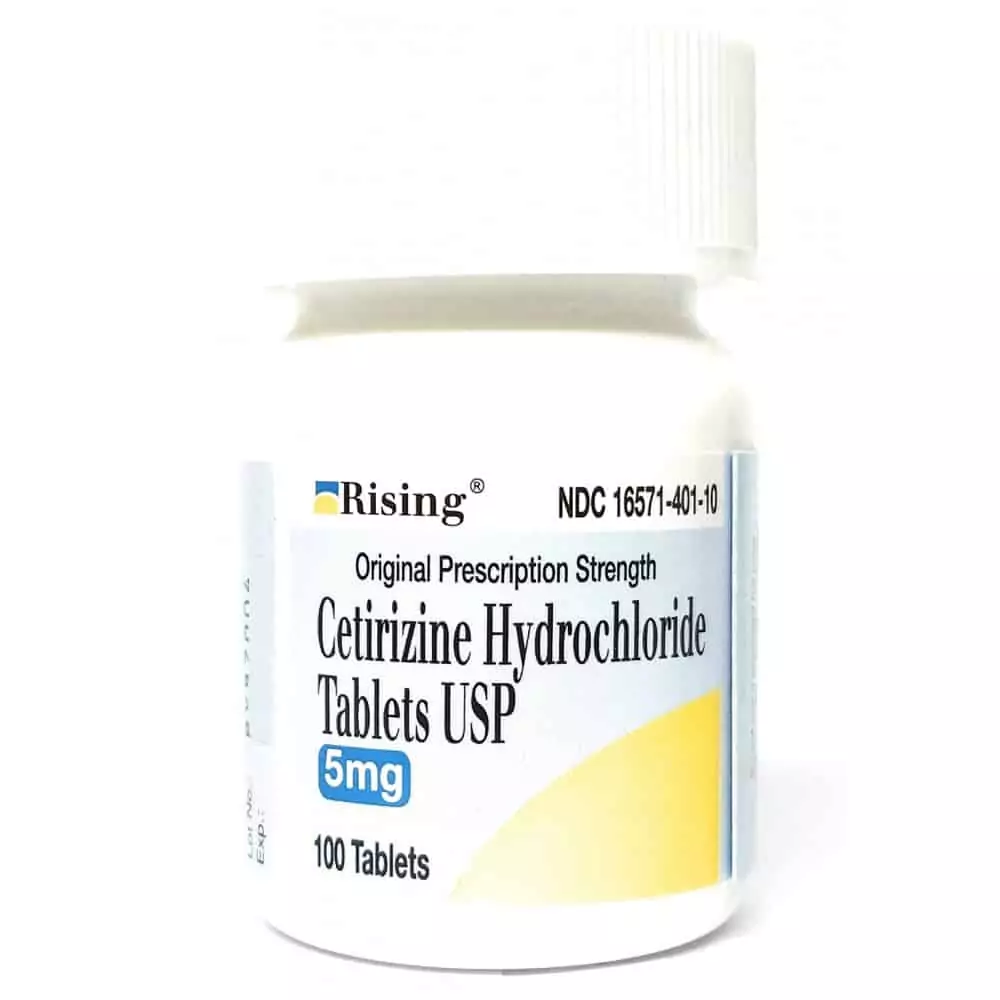Today we will be discussing Claritin for dogs.
There is nothing worse than waking up in the morning sneezing, with a runny nose and watery eyes! Luckily, you have some Claritin in the medicine cabinet to help you alleviate the symptoms.
Toby has also been sneezing a lot, and you noticed he has a stuffy nose and hives on the skin. He probably has an allergy, and Claritin may also help. Before you give Claritin to your dog, you MUST visit your veterinarian to make sure that the underlying cause of the symptoms is an allergy and get consent to use Claritin for your canine companion.
In this article, we will answer some common questions about the use of Claritin for dogs.

What is Claritin for Dogs?
Claritin (active ingredient Loratadine) is an antihistamine that inhibits the effects of histamine in dogs and humans.
But what is histamine? Histamine is a natural substance produced by mast cells that helps to eliminate allergy triggers in the body through sneezing, itchiness, and tear up.
Can I Give My Dog Claritin?
Yes, you can, but with precautions and supervision of your veterinarian.
In humans, Loratadine helps to relieve allergy symptoms. In dogs, it can treat skin sensitivity caused by allergic reactions, help lessen inflammations linked to mast cell tumors, and reduce vaccination reactions.
Claritin is available to purchase without a prescription, and it comes as 10 mg for adults or 2.5 mg for children.

What Causes Allergies in Dogs?
It is crucial to know the causes of allergies before giving Claritin to your dog. Identify them, if possible, to eliminate or mitigate their exposure.
There are many potential triggers of allergies in dogs, and some are harder to tackle than others.
- Environmental causes: Like with humans, dogs are susceptible to environmental triggers, which is the leading cause of seasonal allergies and atopic dermatitis (atopy). Some of the allergens are dust, mold, pollen, and grass.
- Ectoparasites: They are parasites that live outside of their host, such as fleas and ticks. Dogs can be allergic to fleas and ticks saliva.
- Food allergies: Canine companions can be allergic to beef, eggs, chicken, fish, etc. Some signs of food allergies are ear infection, vomiting, diarrhea, and itchiness.
If your dog shows labored breathing and present seizures, it could be a sign of anaphylaxis. That is considered an emergency.

Clinical Signs of Allergies
It would help your veterinarian if you can recognize clinical signs to determine what is best for your furry friend (further exams, drugs such as Claritin.)
Here is a list of the general symptoms of allergies in dogs:
- Itching of the skin in one area or all over the body (most common sign of allergies in dogs)
- Inflammation of the face
- Hives
- Persistent sneezing or coughing
- Runny nose
- Watery eyes
- Gastrointestinal issues like diarrhea or vomiting
Claritin Side Effects and Contraindications
Every medication may have an adverse reaction in humans and dogs. Claritin is not the exception. It might not produce drowsiness like different antihistamine but has other side effects:
- Vomiting
- Urinary retention
- Lethargy
- Dry eye and mouth
- Diarrhea
If you see any side effects in your dog after ingesting Claritin, consult with your vet for other alternatives.

Guidelines For Use of Claritin for Dogs
Before we talk about dosages of Claritin for dogs, it is essential to take into account the following considerations:
- Never give your dog Claritine without the approval of your veterinarian. Always follow their dosage instructions and alert your vet of any other medical conditions or medications. Pregnant bitches and dogs with liver and kidney disease cannot ingest Claritin.
- Do not give your dog Claritine-D. It contains pseudoephedrine (decongestant for humans), which is highly toxic in dogs.
- Only use normal Claritine or Claritin Junior in tablet form and make sure to give the tablet to your dog without crushing it.
- Medicines can only control the symptoms, not cure the allergies.
When talking about dosage and medical advice, ALWAYS speak with your vet, no matter what you see on the internet, because your veterinarian will advise you depending on your pet’s needs and circumstances.
These are just dosage guidelines, according to Valley Vet Hospital: “Claritin (Loratidine): 5 mg daily if less than 15 lbs; 10 mg daily (or 5 mg twice daily) if 15-39 lbs; 10 mg twice daily if over 40 lbs.”
Even though Claritin is not yet FDA approved for animals, Claritin for dogs can be beneficial in certain situations like allergies (especially itchy skins). If you do not want to give your dog Claritin, there are other natural alternatives and drugs such as Benadryl and Zynterc. Speak with your veterinarian first.
Diphenhydramine 25 mg 100 Count Bottle for Pets
Cetirizine Generic Zyrtec Generic -5mg 100 cnt bottle for Pets
from: Vet Approved Rx
If you are in a vet or vet tech school, you may see or use Claritin a lot!
If you like this article, check out our infographic about human medications that are poisonous for pets.



